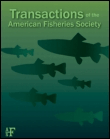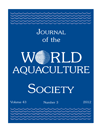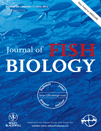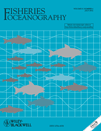
ISRAELI JOURNAL OF AQUACULTURE-BAMIDGEH
Scope & Guideline
Fostering collaboration and knowledge in the aquaculture community.
Introduction
Aims and Scopes
- Aquaculture Techniques and Innovations:
The journal covers advancements in aquaculture practices, including the development of new feeding strategies, breeding techniques, and management practices that enhance productivity and sustainability. - Fish Health and Disease Management:
Research focused on the physiological responses of fish to pathogens, disease prevention strategies, and the use of probiotics and other health management practices is a key area of focus. - Environmental Impact and Sustainability:
Studies analyzing the ecological impacts of aquaculture activities, including water quality management, ecosystem interactions, and sustainable practices, are prominently featured. - Genetic and Molecular Research:
The journal publishes research on genetic diversity, molecular biology, and biotechnological applications in aquaculture, enhancing our understanding of fish genetics and breeding. - Economic and Policy Analysis:
The economic aspects of aquaculture, including financial performance, market dynamics, and policy implications for fisheries management, are also significant themes within the journal.
Trending and Emerging
- Sustainable Aquaculture Practices:
There is a growing emphasis on sustainable aquaculture, including studies on biofloc technology, integrated multi-trophic aquaculture, and the use of alternative feeds to reduce environmental impacts. - Health Management and Probiotics:
Research on fish health, particularly the use of probiotics and dietary supplements to enhance immune responses and disease resistance, is increasingly prevalent. - Impact of Climate Change:
Emerging studies focus on the effects of climate change on aquaculture, examining how temperature, salinity, and environmental stressors affect fish physiology and production. - Nutritional Innovations:
The exploration of novel feed ingredients, including plant-based proteins and functional feeds, is a rising trend as researchers seek to improve growth performance and sustainability. - Genomic and Biotechnological Advances:
Advancements in genomic technologies and their application in aquaculture breeding programs are increasingly featured, highlighting the importance of genetic research in improving fish stocks.
Declining or Waning
- Traditional Aquaculture Practices:
There is a noticeable decrease in research centered on conventional aquaculture methodologies. As the industry evolves, there is a greater emphasis on innovative and sustainable practices rather than traditional methods. - Basic Taxonomy and Morphological Studies:
The decline in papers focusing solely on taxonomic classifications or morphological studies indicates a shift towards more applied research that addresses immediate aquaculture challenges. - Generalized Environmental Studies:
Research that broadly examines environmental factors without specific applications to aquaculture practices is becoming less frequent, as more targeted studies are prioritized.
Similar Journals

FISHERIES MANAGEMENT AND ECOLOGY
Innovating solutions for a sustainable aquatic future.Fisheries Management and Ecology, an esteemed journal published by Wiley, serves as a critical platform for researchers, practitioners, and policymakers in the fields of aquatic science and ecology. With an ISSN of 0969-997X and an E-ISSN of 1365-2400, this journal has been at the forefront of advancing knowledge and best practices in sustainable fisheries management since its inception in 1994. Hailing from the United Kingdom, it has steadily distinguished itself with a respectable impact factor and is currently ranked Q2 in both Aquatic Science and Ecology categories, evidencing its scholarly relevance. The journal not only covers a broad spectrum of topics related to fishery ecology and management, but also emphasizes the importance of interdisciplinary approaches to tackle the myriad challenges facing aquatic ecosystems today. It is indexed in reputable databases and boasts commendable Scopus rankings, making it a valuable resource for anyone invested in the sustainable use of aquatic resources. This commitment to accessibility and engagement, although not open access, ensures that critical research remains a cornerstone for ongoing discussions in the field.

Fishes is a premier academic journal dedicated to the exploration and dissemination of cutting-edge research in the fields of aquatic science and ecology. Published by MDPI in Switzerland, this open-access journal has been accessible to researchers globally since its inception in 2016, allowing for the rapid exchange of knowledge that fosters scientific advancement in the study of fish and aquatic ecosystems. With its convergence in the years 2016 to 2024, Fishes proudly holds a notable position in the academic community, evidenced by its category quartile rankings of Q3 in Aquatic Science and Q2 in Ecology for 2023. The journal consistently features innovative research encompassing ecological interactions, conservation strategies, and evolutionary studies within aquatic environments. By integrating interdisciplinary approaches and encouraging contributions from a diverse array of experts, Fishes serves as an invaluable resource for researchers, professionals, and students alike, contributing to the understanding and preservation of our precious aquatic biodiversity.

ACTA ICHTHYOLOGICA ET PISCATORIA
Exploring the depths of ichthyology and fisheries.ACTA ICHTHYOLOGICA ET PISCATORIA is a distinguished peer-reviewed journal dedicated to the field of ichthyology and fisheries science, published by PENSOFT PUBLISHERS since its establishment as an open-access publication in 1970. Based in Poland, this journal serves as an essential platform for researchers, professionals, and students aiming to contribute to the scientific understanding of aquatic life. With an impressive H-index reflecting its growing influence, ACTA ICHTHYOLOGICA ET PISCATORIA is currently ranked in the Q3 quartile within both the Animal Science and Zoology and Aquatic Science categories. According to Scopus, it holds a rank of #227 in Animal Science and Zoology and #147 in Aquatic Science, demonstrating its relevance and contribution to these fields. The journal’s commitment to open access ensures that research findings are widely disseminated, fostering collaboration and knowledge sharing among the scientific community. With a historical scope extending from 1996 to 2024, ACTA ICHTHYOLOGICA ET PISCATORIA remains a vital resource for advancing aquatic research and fostering new insights into the complexities of fish biology and fisheries management.

TRANSACTIONS OF THE AMERICAN FISHERIES SOCIETY
Championing conservation through rigorous peer-reviewed research.TRANSACTIONS OF THE AMERICAN FISHERIES SOCIETY, published by Wiley, is a leading journal dedicated to the field of fisheries science and aquatic ecology, with a rich history dating back to its inception in 1872. As an esteemed publication within the realms of Aquatic Science and Ecology, Evolution, Behavior, and Systematics, it currently holds a Q2 quartile ranking, demonstrating its significance and influence in these disciplines. The journal is not open access, which enables a curated peer-review process while ensuring high-quality research dissemination. The journal serves as a vital platform for scholars and practitioners alike, providing essential insights into the management and conservation of aquatic resources. Its commitment to addressing contemporary challenges faced in fisheries and aquatic environments makes it indispensable for researchers, professionals, and students seeking to contribute to this dynamic field.

BULLETIN OF THE EUROPEAN ASSOCIATION OF FISH PATHOLOGISTS
Elevating Standards in Fish Pathology Research.BULLETIN OF THE EUROPEAN ASSOCIATION OF FISH PATHOLOGISTS is a leading journal dedicated to advancing research and knowledge in the field of fish pathology, published by the European Association of Fish Pathologists. With its ISSN number 0108-0288, this journal has consistently contributed to the academic landscape since its inception in 1996. Based in the United Kingdom, this journal is recognized for its high-quality research output, holding a commendable Q2 ranking in both Aquatic Science and Small Animals categories as of 2023. The Scopus rankings further reflect its impact, notably securing a 10th rank in Veterinary Small Animals, showcasing its relevance and influence in the field. Although it does not offer Open Access, the content remains vital for researchers and practitioners invested in addressing the challenges associated with fish health and pathogens. The journal serves as a critical platform for sharing innovative studies, fostering collaborations, and informing ongoing developments in aquatic science. Its commitment to maintaining high standards ensures that it remains an essential resource for professionals, researchers, and students alike in pursuit of knowledge on fish pathology and aquatic health.

Turkish Journal of Fisheries and Aquatic Sciences
Connecting global minds in fisheries and aquatic research.Turkish Journal of Fisheries and Aquatic Sciences, published by the CENTRAL FISHERIES RESEARCH INST, is a key resource in the fields of Fisheries and Aquatic Sciences, catering to a global community of researchers and professionals. With its ISSN 1303-2712 and E-ISSN 2149-181X, this journal offers an engaging platform for the dissemination of high-quality research from Turkey, covering critical topics within Animal Science and Aquatic Science. As a third quartile journal in both categories (Q3, 2023), it provides valuable insights, contributing to a growing body of literature that addresses aquatic ecosystems, fisheries management, and biodiversity conservation, thereby enhancing the sustainability of aquatic resources. The journal has shown considerable impact, ranking 144th in Animal Science & Zoology and 116th in Aquatic Science within Scopus, reflecting its relevance and credibility within the academic community. Operating from 2008 to 2024, it invites open access submissions to foster collaboration and knowledge sharing among scientists, students, and practitioners alike, reinforcing its dedication to advancing the science of aquatic ecosystems.

JOURNAL OF THE WORLD AQUACULTURE SOCIETY
Connecting Scholars for Sustainable Aquatic PracticesThe JOURNAL OF THE WORLD AQUACULTURE SOCIETY, published by WILEY, serves as a premier platform for researchers, practitioners, and academics in the thriving fields of aquaculture and aquatic sciences. With an ISSN of 0893-8849 and an E-ISSN of 1749-7345, this esteemed journal boasts an impressive ranking in Scopus, placing it in the Q1 quartile for both Agronomy and Crop Science and Aquatic Science. Recognized for its rigorous peer-review process and high-quality publications since its inception in 1986, the journal continues to play a vital role in disseminating cutting-edge research that addresses the complex challenges and opportunities within aquaculture practices globally. The journal's impact is underscored by its rank of #37 out of 247 within the category of Aquatic Science and #70 out of 406 in Agronomy in 2023, positioning it firmly in the top tier of scholarly journals. Researchers and professionals will find an invaluable resource in this journal, which not only aims to advance scientific knowledge but also fosters a community committed to sustainable aquatic development.

JOURNAL OF FISH BIOLOGY
Navigating the Waters of Fish ScienceJOURNAL OF FISH BIOLOGY, published by Wiley in the United Kingdom, is a distinguished peer-reviewed journal dedicated to advancing the understanding of the biology and relationships of fishes. With a robust history from its inception in 1969 to its future publications extending into 2024, the journal occupies a pivotal position in the academic landscape of aquatic sciences and ecology. Holding a notable Impact Factor and recognized within the second quartile (Q2) for both Aquatic Science and Ecology, Evolution, Behavior and Systematics, it serves as an essential resource for researchers, professionals, and students alike. The journal’s contributors delve into diverse topics ranging from evolutionary biology to conservation strategies, fostering a dynamic interchange of knowledge and innovation within the fish biology community. Access options are currently via subscription, ensuring high-quality, curated content that reflects the latest empirical research and theoretical advancements in the field.

FISHERIES OCEANOGRAPHY
Bridging Physical and Biological Realms of the SeaFisheries Oceanography, published by Wiley, is a leading peer-reviewed journal that focuses on the intricate dynamics of marine ecosystems and the interactions between physical and biological processes in ocean environments. With an ISSN of 1054-6006 and E-ISSN of 1365-2419, this esteemed journal has firmly established itself as a valuable resource for researchers and practitioners in the fields of Aquatic Science and Oceanography, ranking in the top quartile (Q1) in both categories as of 2023. Since its inception in 1992, it has provided a platform for the dissemination of innovative research and practical applications in fisheries and marine resource management, contributing significantly to the understanding of oceanic systems. With an impactful presence evidenced by its Scopus rankings, including a position of #60 out of 247 in Aquatic Science and #41 out of 145 in Oceanography, the journal seeks to further advance knowledge and foster collaboration among the global scientific community. Although not an open access journal, it remains committed to maintaining high standards in scholarly publishing, ensuring that critical advancements in oceanography are readily accessible to professionals and academics alike.

REVIEWS IN FISH BIOLOGY AND FISHERIES
Exploring the intricacies of fish biology and sustainable fisheries.Reviews in Fish Biology and Fisheries, published by Springer, is a prestigious journal dedicated to advancing our understanding of fish biology and the principles underpinning fisheries science. With an impact factor reflective of its high citation rate and its recognition as a Q1 category journal in Aquatic Science, it ranks impressively at #9 out of 247 in the Scopus database, placing it within the top 4% of its field. Established in 1991, this journal serves as a crucial platform for researchers, professionals, and students alike, offering comprehensive reviews and insights that foster innovation and collaboration in aquatic research. Although it is not available as an open-access publication, its rigorous peer-review process ensures the dissemination of quality research that informs policy and practices in fisheries management globally. With a diverse range of topics covered, the journal is an essential resource for anyone aiming to deepen their knowledge and impact in the dynamic fields of fish biology and fisheries.